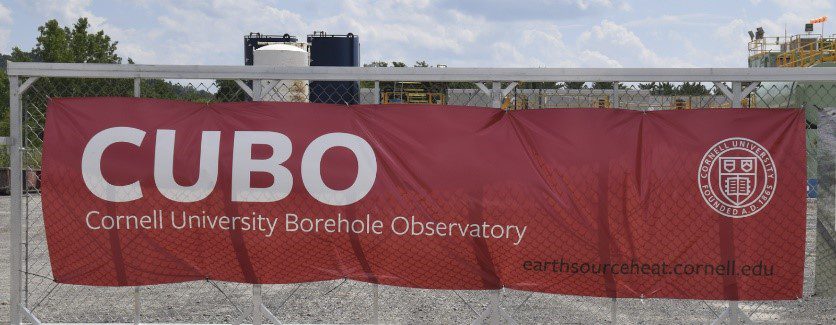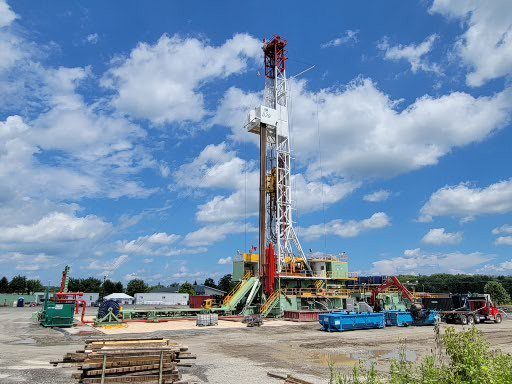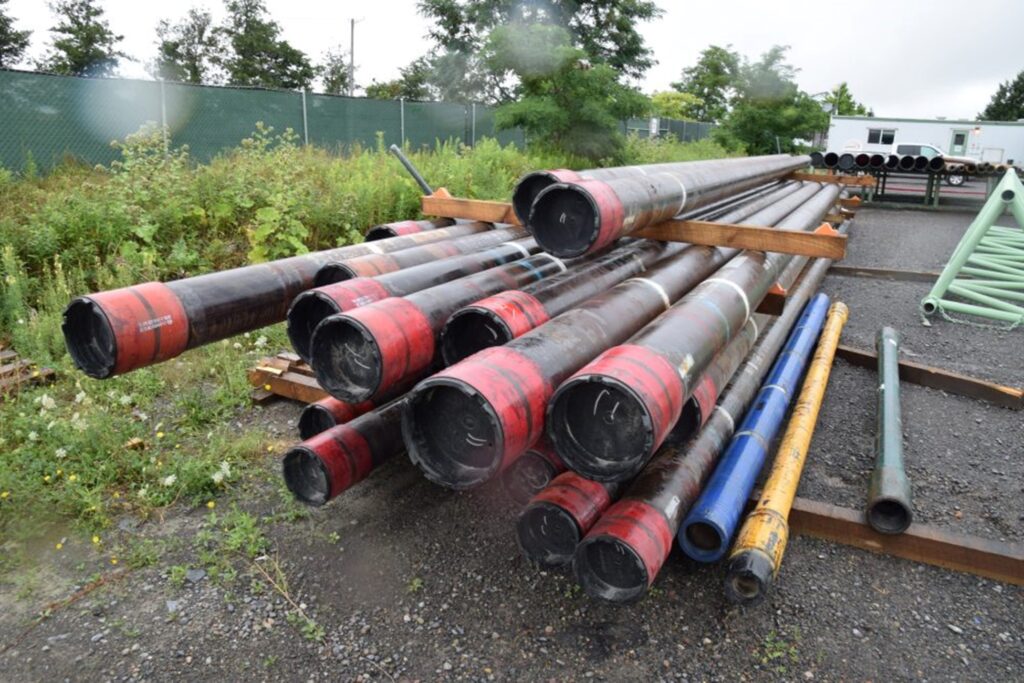Far Below Cayuga’s Waters
Far Below Cayuga’s Waters
By Caitlin McDonnell
The conversation around increasing the percentage of renewable energy in the generation mix continues to grow larger, and more complex. As you may recall from our previous post on geothermal energy, wind and solar, while the most frequently cited renewable energy sources, face the challenge of intermittency. Without significant improvements in energy storage technology, neither can provide reliable power. Geothermal energy, or the heat that exists deep within the earth’s crust, presents the potential for baseload, renewable energy supply for much of the United States. The Department of Energy (DOE) observes that the US alone contains more than 5 terawatts of geothermal heat resources. A fraction of this amount could power all homes in the United States
See Note 1, below, for a refresher on geothermal energy.
On June 21, 2022, a team at Cornell spudded the Cornell University Borehole Observatory (CUBO) well for the purpose of assessing the potential for earth source heat (ESH) under the Cornell campus.

Cornell defines ESH as “Cornell’s version of a deep geothermal system that would use the Earth’s internal heat to warm the Ithaca campus without the use of fossil fuels.” The drilling rig was powered by an electric motor served by a 5-MVA transformer interconnected with the electric grid, rather than by a diesel engine, as is typically the case.

Drilling concluded on August 13, 2022 as the borehole extended into the top of crystalline basement rock at a final depth of 9,790 feet and a bottom hole temperature of about 200 degrees Fahrenheit. Over time, CUBO will provide data to determine if the rock characteristics and temperatures in Ithaca’s subsurface are sufficient to heat the campus’s buildings. If so, the team of researchers will move to the next phase of ESH to engineer the energy extraction process by which Cornell could harness the geothermal energy.

A key part of Cornell’s goal to achieve climate neutrality by 2035 lies in its ability to convert the campus from steam to water heat. This will allow the campus’s energy distribution system not only to transfer the heat captured through ESH (if pursued) to campus buildings, but also to accept other forms of renewable energy as well. This conversion is currently underway.

The well, funded by a $7.7 million grant from the US Department of Energy (DOE), is a national demonstration site; its success could pave the way for geothermal energy systems across the country. On September 8, 2022, the DOE announced a goal to reduce the cost of enhanced geothermal systems by 90%, to $45 per megawatt-hour by 2035. Prior to announcing this aggressive goal, the DOE made two geothermal funding announcements that will support the effort – up to $165 million to fund the transfer of knowledge, skills, and technology from the oil and gas industry to geothermal deployment on July 8, 2022, and up to $44 million to fund innovations in advanced geothermal systems on August 15, 2022.
With the drilling phase for CUBO complete, data analysis is now underway. It will be interesting to see if and how the Cornell team moves forward to the next phase of the project and drills a demonstration “well pair.”
Note 1: Geothermal energy involves extracting heat from the earth. Some of this heat remains from the original formation of the earth. Some is the result of the radioactive decay over millions of years of elements deep within the earth. Geothermal energy applications are large scale projects that tap into this heat source through wells drilled several miles below the surface of the earth.
The Avalon Advantage ““ Visit our website at www.avalonenergy.us, call us at 888-484-8096, or email us at info@avalonenergy.us.
Please feel free to share this article. If you do, please email or post the web link. Unauthorized copying, retransmission, or republication is prohibited.
Copyright 2022 by Avalon Energy® Services LLC
